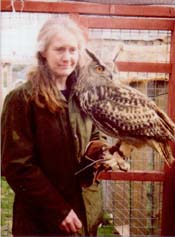Murder in a Landscape
 Crime writers love an imaginary landscape, especially if their books form a series. There are untold hectares of made-up countryside, full of murders. Each has its detective – a policeman, most likely; each has its fabric of villages, manors, woods and streams. These invented lands form a study in themselves, and guides have been compiled to help readers keep track of them. It hardly seems necessary to create another.
Crime writers love an imaginary landscape, especially if their books form a series. There are untold hectares of made-up countryside, full of murders. Each has its detective – a policeman, most likely; each has its fabric of villages, manors, woods and streams. These invented lands form a study in themselves, and guides have been compiled to help readers keep track of them. It hardly seems necessary to create another.
All the same, that’s what I’ve been doing here in Orb’s Bookshop these past three years. My excuses are flimsy. The shop is quiet, that’s one thing; also, someone loaned me a laptop, because I wanted to write some papers based on research I’ve done. When I opened the shop they were partly written, and that’s how they remain. I couldn’t concentrate on that side of things here. But three murder mysteries got themselves written. The atmosphere of the bookshop fosters murders.
That’s not to say that its atmosphere is redolent of blood. But many of my customers are mystery fans, and they’re my final excuse: they have such trouble finding a book they want. They’ve read everything of the proper vintage, and nothing written today is worth reading, they say. So I started to hoard mysteries and to read them, both vintage and up-to-date. Many were clever whodunits, slick, even elegant. I began to wonder how they were made.
By definition, a murder mystery begins when someone’s life ends. The key to the puzzle isn’t the death but the life. So mystery writers probably start by imagining someone’s life. What if this person’s life was tangled up with this other person’s? In this situation, what would they do, which way would they go? In answering the questions you build up a plot. Your detectives have to work backwards. I began with ‘what ifs’, with stick-figure characters, like the symbols in an equation. But they wouldn’t stay symbols. They had histories and relationships and above all, motives; they assumed shapes and developed minds. Most of them also turned out to have jobs, and these dictated the landscape around them.
It isn’t Aberdeenshire, although that’s where I live. It’s wetter and greener, the southwest. Its rivers flow to the Solway Firth, and Glasgow is the nearest big city. The characters live in the country or in little towns, the largest one being about the size of Dumfries.
In this small world there are enterprising people. Some folk run businesses of their own. Some work on dairy farms and others are mechanics or tax advisors. And it seems like a good idea to have cops.
They crept into the story the way cops do. Someone dies suddenly – call the police. I don’t know much about the police, but then, I reasoned, this is a fantasy, so let the cops do what seems right for the story. They investigate; they have their procedures; they also have working relationships with each other. But in the beginning they weren’t meant to be interesting.
The central characters were a group of friends who’d grown up together. They were still young; I thought I’d better have someone in his fifties, too, so I’d have a character to identify with. I let this person be the detective inspector in charge of the case. Of course I could never have been a cop, and if I could I’d be female, so we aren’t much alike: he’s also a better person than I am, but I identify with him all the same. That’s why he became more important than I intended.
So the elements assembled themselves: the landscape and the detective. Then when I’d finished, the characters began another tale. New folk popped up, and some who’d been in the background came forward. This second story moved fast and didn’t take long to write. Then I started a third one.
I thought I’d call it a day with three, but I haven’t. It turns out that imaginary landscapes call to you and lure you back. They’re somewhere you go to escape from care; the characters are the imaginary friends of your heart. No doubt the writers who indulge in these fantasies look forward, like me, to their next ramble in murder country.
 Annie Lamb aka Liz Laighton is the owner of Orb’s Bookshop in Huntly, Aberdeenshire and self-published her first Marchbank murder mystery, A Killer Close at Hand in 2004 with Publish and Be Damned, ISBN 1 904929 50 8. Her second novel, Hideous Gifts, is available from UKA Press www.ukapress.com
Annie Lamb aka Liz Laighton is the owner of Orb’s Bookshop in Huntly, Aberdeenshire and self-published her first Marchbank murder mystery, A Killer Close at Hand in 2004 with Publish and Be Damned, ISBN 1 904929 50 8. Her second novel, Hideous Gifts, is available from UKA Press www.ukapress.com
Copyright Annie Lamb 2005

Comments